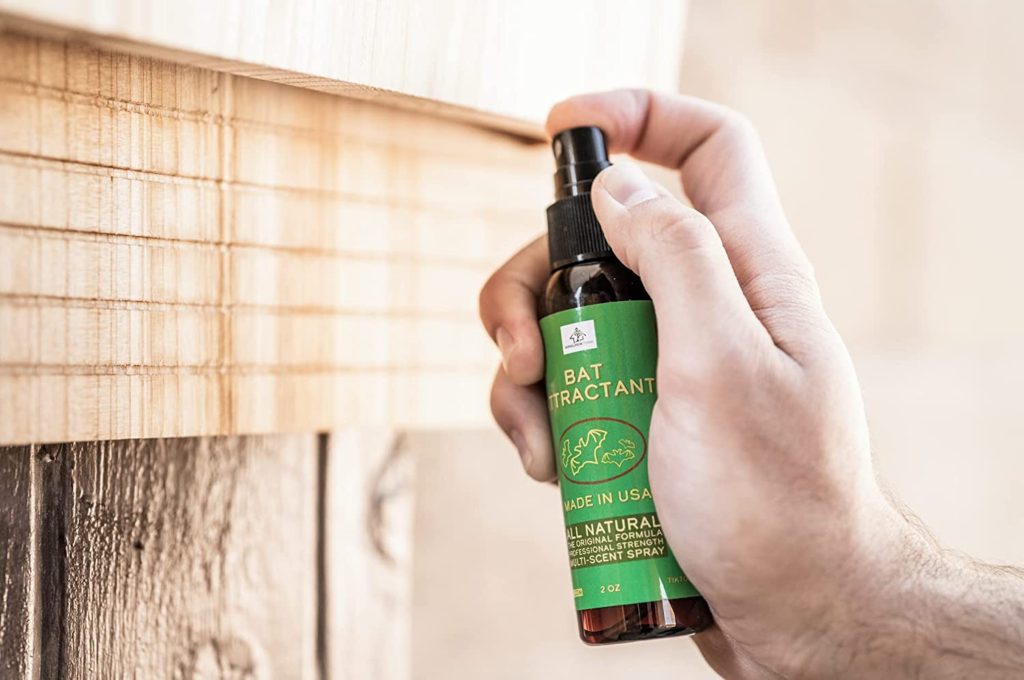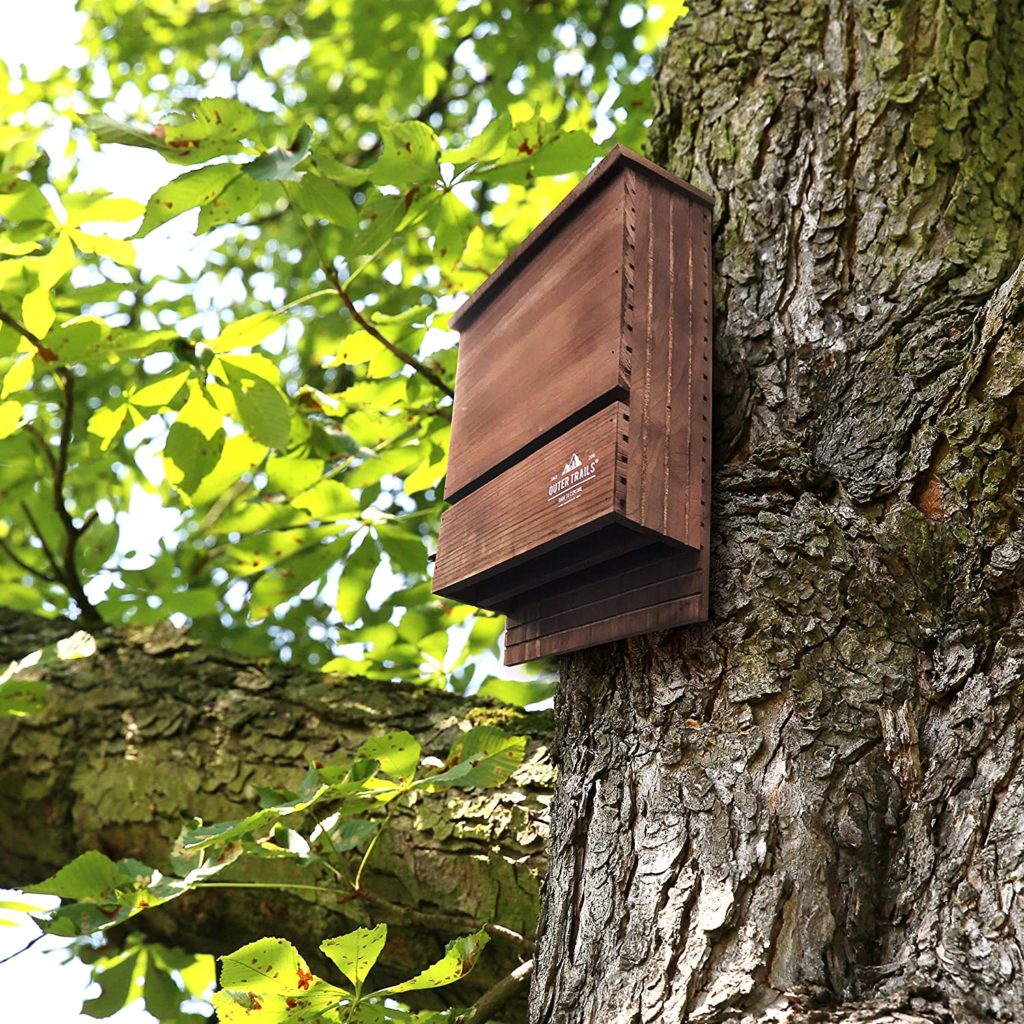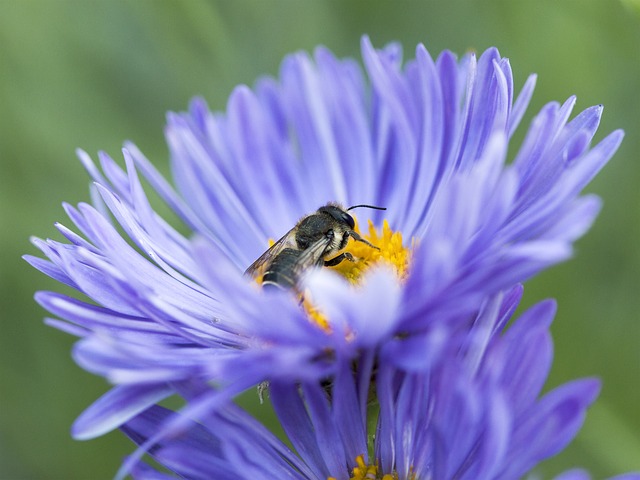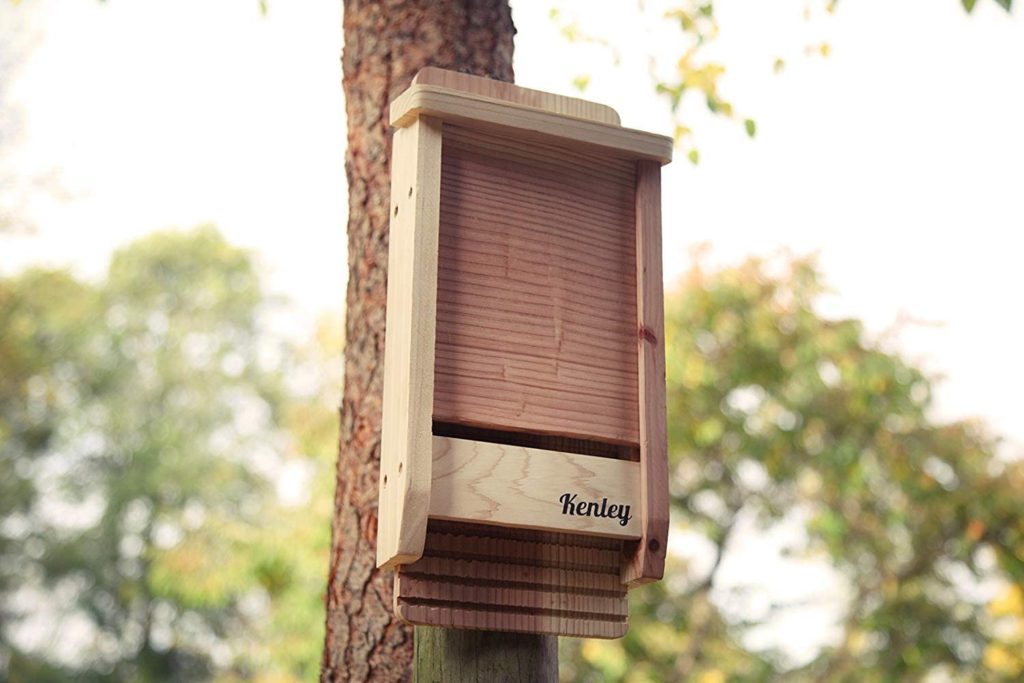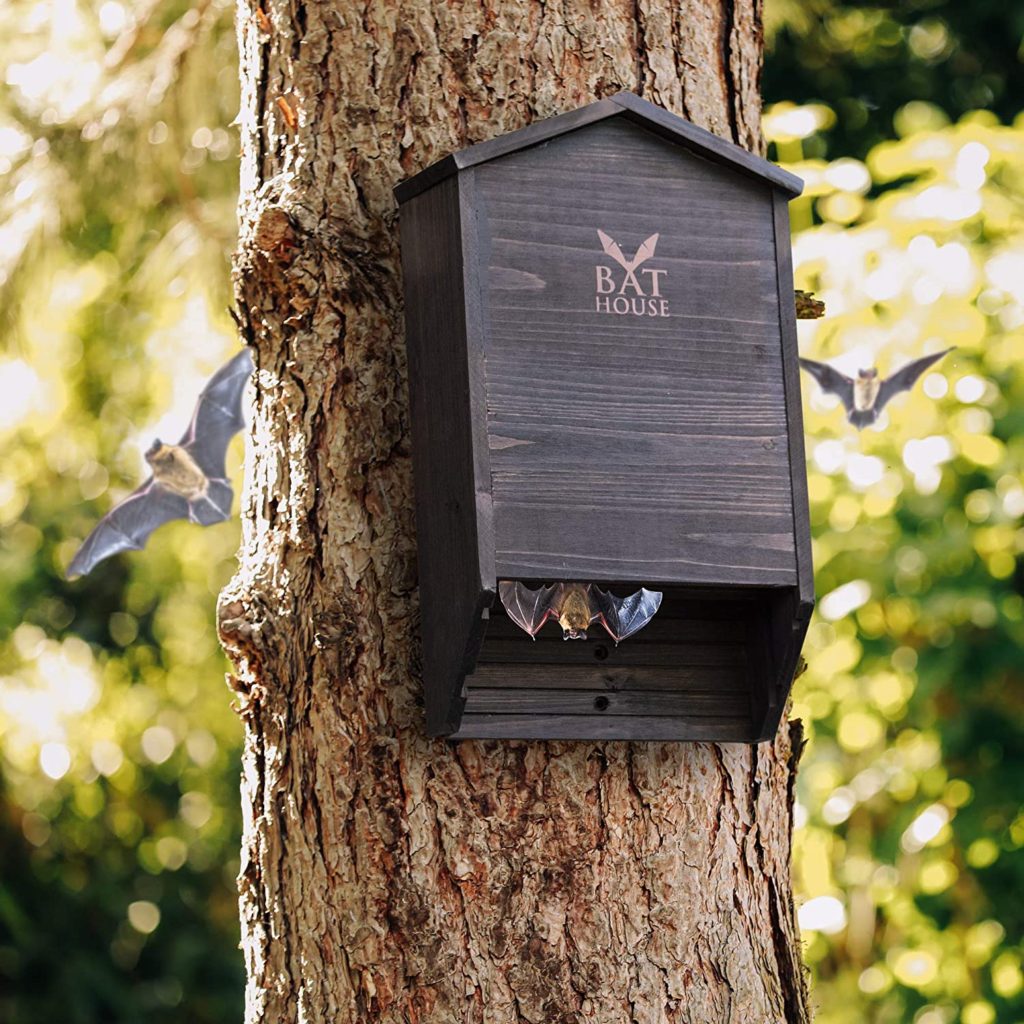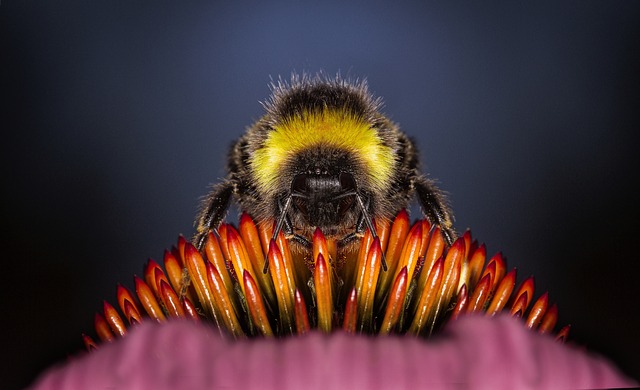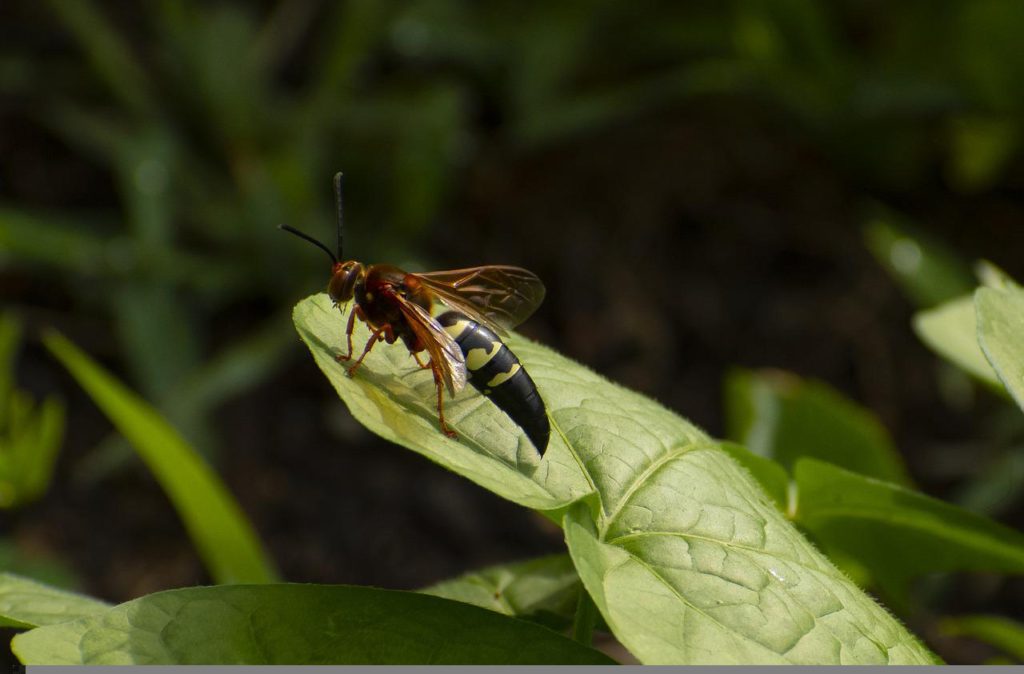
One look at one of these huge wasps buzzing around, your yard, and it’s only natural to ask, “Are cicada killers dangerous?” Fortunately, these wasps are mild-mannered. But here’s what you’ll want to know.
Cicada Killer Wasps Basics
Cicada killers emerge from the ground each summer and often build their underground burrows along the edges of sidewalks, patios, gardens, and lawns. Each cicada killer lives alone in its burrow. They prefer to dig their burrows in sunny spots with loose well-drained soil.
They are large wasps that can reach up to two inches in length with a rusty-colored head, body, and wings, a black abdomen with yellow stripes, and orange legs.
Are Cicada Killers Dangerous To Humans?
While they may be formidable-looking, they are in fact passive. Unlike hornets and honey bees, cicada killers don’t have nest-guarding instincts. So if you leave them alone, they will leave you alone. Although males may buzz very closely to anyone or anything that enters into their territory, it’s all a display. Or they may simply be checking you out.
Male cicada killer wasps do not have stingers. And while they may act like it, they can’t sting and are not dangerous in any way whatsoever. Females do have a stinger, which is used to inject captured cicadas with venom in order to paralyze them so that they can provide food for their young. Although they can sting, female cicada killers are considered difficult to provoke into stinging.
Females usually avoid humans and are too busy looking for cicadas to be concerned with what any nearby humans are during. In order to get stung by a cicada killer, you’d have to physically pick up a female and roughly handle it in a way that would make it feel as if it was being attacked.
You also would be likely to be stung if you stepped on one, so always be sure to wear the appropriate footwear near any cicada killer nests. Luckily their sting is considered to be very mild in comparison to other stinging insects and even comparable to a pinprick. And unless you happen to be allergic to the venom from the sting (in which cause you should seek medical attention) there should be no issue.
Are Cicada Killers Dangerous To Pets?
Similar to humans, pets are of no interest to cicada killers. However if a cat or dog was to catch one, and it turned out to be a female they most likely would be stung in their mouth. While not a pleasant experience for any pet, the majority of the time, this would simply teach the dog or cat to stay away from any cicada killer wasps in the future.
Though pets can be allergic to the venom from the sting and if you suspect that your pet has been stung and is having an allergic reaction it should be brought to your veterinarian immediately.
Start Shopping For Wasp Deterrents!
How Does A Heron Catch Fish?
The great blue heron is well-known for its looks but also its fish-catching abilities. Whether in the wild or someone’s backyard pond these large birds are master hunters. So how does a heron catch fish? Here’s what you’ll want to know. Built For Success While herons...
What Direction Should A Bat House Face?
Buy on Amazon Bats are very particular when it comes to whether or not they will move into a bat house. One of the most important factors is the temperature inside, which will be strongly influenced by the direction that the house is facing. So what direction should a...
When To Put Up A Bat House
Buy on Amazon Bats can be a big benefit to your yard. But they can be picky when it comes to where they actually decide to roost. Knowing when to put up a bat house can help to tip the odds in your favor. Basic Seasonal Bat Behavior Many people don’t realize that in...
Bat Attractant: The Secret Weapon For Bat House Success
Buy on Amazon Purchasing a bat house is easy, however, having a colony of bats take up residence inside it is sometimes another story. To tip the odds in your favor using bat attractant can help. Here’s what you’ll want to know when considering using it. Bat House...
How To Attract Bats To Your Bat House
Buy on Amazon Having bats in your yard offers many fantastic benefits. So it’s no wonder that more and more people are installing bat houses in an attempt to get them to stay. However, you’ll first need to know how to attract bats to your bat house if you want them to...
The Buzz About Bee Gardens
Chances are if you’ve been paying even a little bit of attention, you’ve heard about the “beepocalypse.” Depending on the source, you’ve likely seen varying levels of concern. While some experts are simply following the phenomenon, others are downright alarmed....
What Does A Bat House Look Like?
Buy on Amazon Bat houses are shelters made specifically for bats. These flying mammals have special needs that houses are designed to meet. So what does a bat house look like? Well, read on and find out! Bat House Designs Houses for bats actually look like boxes. For...
What Is A Bat House?
Buy on Amazon What is a bat house? And better yet, why would you want one on your property? These are both commonly asked questions. Whether you’re just curious or have always wanted to have bats in your yard here’s what you’ll need to know. Bats are nocturnal...
The Top Bat House Benefits
Buy on Amazon A bat house is a specially designed shelter for bats. It provides them with a safe and convenient place to sleep. While they are great for the bats, there are many bat house benefits you can enjoy as well when you have one in your yard. Keep Bats Out Of...
Where To Put A Bat House
Buy on Amazon Where to put a bat house is an important decision. If it’s not in an appropriate spot, you may be putting your resident bats in danger. Or you may end up with an empty house since no bats are interested in living in it. So you’ll need to know a few...
Beneficial Garden Insects And Creatures Often Confused For Pests
There are many animals that we consider to be pests. However, many of them actually perform critical tasks and help to control the populations of much more devastating species. The following beneficial insects and creatures are ones you’ll want to keep around....



